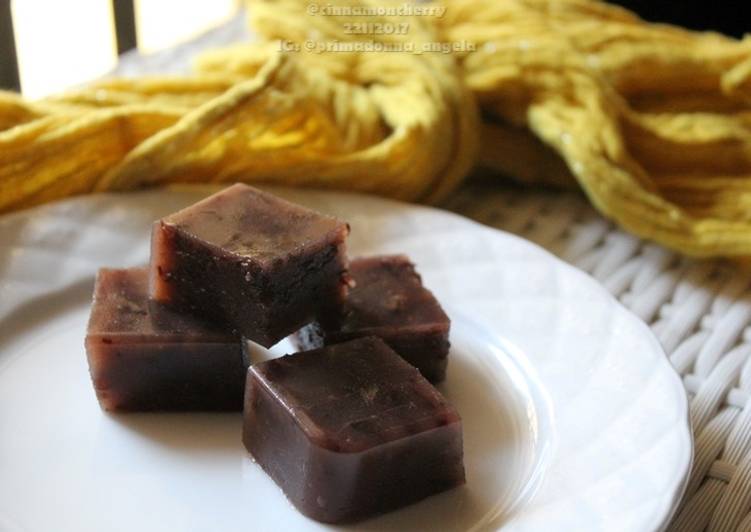Recipe: Tasty Mizu Yokan

Recipe: Tasty Mizu Yokan Delicious, fresh and tasty.
Mizu Yokan. Mizu Yokan is a traditional Japanese dessert, or wagashi, as it is known in Japanese cuisine. Yokan is a general term which refers to this jelly dessert made of red azuki beans, agar, and sugar. The red azuki beans are in the form of tsubuan (smooth red bean paste) or koshian (coarse red bean paste).
Have you tried or seen a Japanese red bean jelly called Yokan (羊羹, ようかん)?
This traditional Japanese sweet is usually shaped like a rectangular block and the texture is pretty firm so even when sliced thinly it would stand upright.
This small mizu-yokan using kanten or agar firms up quickly even if at room temperature so it is very easy to make.
You can cook Mizu Yokan using 5 ingredients and 4 steps. Here is how you cook that.
Ingredients of Mizu Yokan
-
It’s 1 cup of water.
-
You need 1 tsp of sugar.
-
You need 1 sachet of agar-agar/kanten (7 gr).
-
It’s 1 cup of azuki paste (red bean paste).
-
Prepare 1 pinch of salt.
You can also use an ice cube tray as a mold or serve the mizu-yokan in shot glasses.
Gradually the water leaks from the surface so keep the mizu-yokan in the molds when stored in the fridge for long periods of time.
The sweet Mizu Yokan is a Japanese jellied dessert made of bean paste, agar, and sugar.
There are several flavors of Yokan in Japan.
Mizu Yokan instructions
-
Mix water, sugar, and agar-agar. Use medium heat. Stir continuously until it boils..
-
Turn off the heat. Add salt and mix well..
-
Add azuki paste and mix well, stirring until the mixture is even in color and texture..
-
Pour into mold. Cut when it is firm..
For example, Red bean, white kidney bean, chestnuts, persimmons, sweet potato, and so on.
Yokan in Japanese or yang'geng in Chinese is a pastry based on azuki bean paste and gelling agent (agar-agar or gelatin).
The word yokan itself refers to this red bean jelly, and when it is chilled, it is called mizu (means water) yokan.
It is particularly popular during summertime in Japan.
Mizu yokan contains less agar and more water, which makes the texture softer and smoother than a standard yokan.

